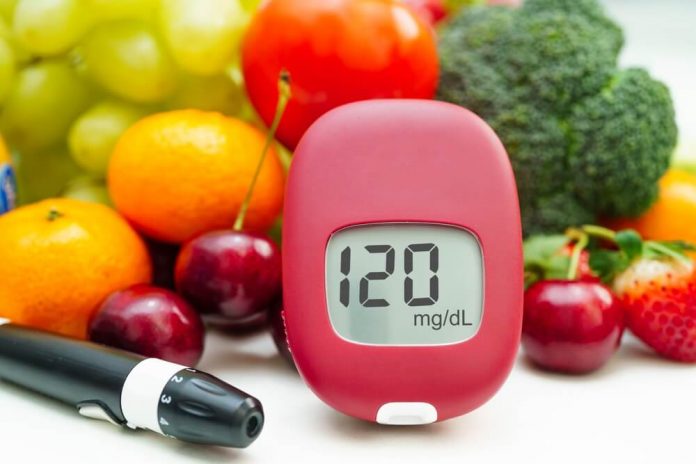Diabetes is a condition that affects millions of people all over the world, especially seniors. It is a chronic disease that occurs when the body is unable to produce enough insulin or use it effectively. This leads to high levels of sugar in the blood, which can cause serious health problems. If you have been diagnosed with diabetes, it is important to carefully monitor your diet and make necessary changes to manage your condition.
Here are some key insights on what to eat and avoid while on a ‘diabetes diet’ that is suitable for seniors.
The first step towards managing diabetes is to understand the importance of a healthy and balanced diet. Eating a variety of foods from different food groups is essential for maintaining good health. As a senior, your body requires specific nutrients to function properly, and this becomes even more crucial if you have diabetes. A diabetes diet should be focused on controlling blood sugar levels, managing weight, and reducing the risk of complications. Here are some foods that you should include in your diet.
- Vegetables: Vegetables are an essential part of a diabetes diet. They are low in calories and packed with nutrients, making them an ideal choice for seniors. Dark, leafy greens like spinach, kale, and collard greens are rich in vitamins, minerals, and antioxidants. They also have a low glycemic index, which means they do not cause a sudden spike in blood sugar levels. Other vegetables such as broccoli, cauliflower, and carrots are also great options. Try to include a variety of colors in your diet as each color signifies different nutrients.
- Fruits: Fruits are a great source of vitamins, minerals, and fiber. However, some fruits may contain high amounts of sugar, which can cause a rise in blood sugar levels. It is important to choose fruits with a low glycemic index such as apples, berries, and citrus fruits. These fruits are also rich in antioxidants, which can help in preventing diabetes-related complications. It is recommended to consume fruits in their whole form, rather than juices, which can cause a quick spike in blood sugar levels.
- Whole grains: Whole grains are an important part of a diabetes-friendly diet. They are rich in fiber, which helps in slowing down the absorption of sugar into the bloodstream. This prevents a sudden spike in blood sugar levels and keeps them under control. Whole grains also provide essential nutrients like B vitamins, iron, and magnesium. Some examples of whole grains are brown rice, whole wheat, oats, and quinoa.
- Lean proteins: As we age, our muscles tend to weaken, making it essential to include protein in our diet. Protein helps in building and repairing muscles, which is important for seniors. Lean protein sources like fish, chicken, tofu, and beans are low in fat and rich in nutrients. They also have a low glycemic index, making them suitable for people with diabetes. It is recommended to limit the intake of red meat as it contains high amounts of saturated fats, which can increase the risk of heart disease.
- Healthy fats: Not all fats are bad for you. In fact, some fats are essential for maintaining good health. Healthy fats like olive oil, avocado, nuts, and seeds are rich in monounsaturated and polyunsaturated fats, which are good for your heart. These fats also help in reducing inflammation in the body, which is beneficial for people with diabetes. However, it is important to limit the intake of unhealthy fats found in fried and processed foods.
Now, let’s talk about the foods that you should avoid or limit in your diet if you have diabetes.
- White bread and refined grains: White bread, pasta, and rice are highly refined grains that have a high glycemic index. This means that they are quickly digested, causing a sudden spike in blood sugar levels. These foods also lack essential nutrients and fiber, making them a poor choice for people with diabetes. Instead, choose whole grain alternatives that are rich in fiber and have a lower glycemic index.
- Sweets and sugary beverages: Sweets and sugary beverages like soda, fruit juices, and energy drinks should be avoided if you have diabetes. These foods are high in calories and sugar, which can cause a rapid rise in blood sugar levels. Instead, satisfy your sweet tooth with whole fruits or sugar-free alternatives.
- Processed and fried foods: Processed and fried foods are high in unhealthy fats, sodium, and calories. They can increase the risk of heart disease and worsen diabetes-related complications. It is best to avoid or limit the intake of these foods and opt for healthier cooking methods such as baking, grilling, or steaming.
In addition to following a healthy and balanced diet, seniors with diabetes should also stay hydrated, limit alcohol intake, and engage in regular physical activity. It is also important to monitor blood sugar levels regularly and consult with a healthcare professional for any changes in medication or diet. By following a diabetes-friendly diet and making healthy lifestyle choices, seniors can effectively manage their diabetes and live a fulfilling life.
A diabetes-friendly diet for seniors should include a variety of vegetables, fruits, whole grains, lean proteins, and healthy fats. At the same time, it is important to limit or avoid foods that can cause a sudden spike in blood sugar levels. By making small changes to your diet and lifestyle, you can effectively manage your diabetes and improve your overall health and well-being. Remember to consult with a healthcare professional before making any significant changes to your diet. Stay healthy, stay active, and enjoy your golden years to the fullest.








